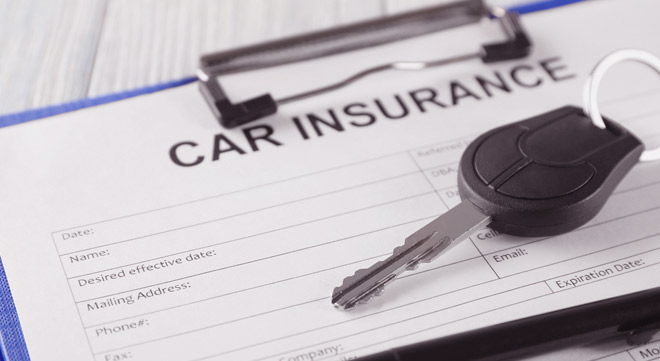Consumers could save significant amounts of money every month by buying cars that come with affordable short-term insurance premiums.
According to short-term insurance actuary John Wessels, most consumers select the make and model of their new car, choose a colour and the extras, and receive finance approval before even considering insurance.
“Getting short-term insurance quotes is often a last-minute scramble triggered by the car dealership requesting proof of insurance before allowing you to drive your new car out of the showroom, especially if your car is financed,” says Wessels.
He adds that the shock of unexpected short-term insurance premiums is usually the biggest for young first-time car buyers, who also tend to have higher insurance premiums.
“If they have maxed out their budget on car repayments without considering the cost of insurance, these new car owners may face an unexpected financial shortfall every month. All it takes then is an increase in the interest rate, and possibly more hikes in the fuel price, and the car becomes unaffordable.”
Wessels says it is no surprise that the Ombudsman for Banking Services reported increased vehicle repossessions last year. In 2023, the South African Reserve Bank hiked the repo rate from 7% to a 14-year high of 8.25%, placing a significant burden on consumers with debts such as car repayments. The cost of petrol increased by 14% in 2023.
The cost of insurance should determine the car you buy
Wessels says that car insurance premiums are determined by several factors, including the following:
- the make and model of the car;
- the driver’s age and driving history;
- the owner’s credit profile;
- where the vehicle will be parked most of the time;
- whether the vehicle is used for private driving, business or both;
- the level of coverage and the excess chosen; and
- any optional add-ons, such as car hire.
According to Wessels, a young and inexperienced driver who buys a fast car from a brand more likely to be stolen can expect a sizeable monthly insurance premium.
“This can be avoided by obtaining insurance quotes for different types of cars before committing to a purchase,” says Wessels. “You may not get the car of your dreams, but at least you know that you will not lose your new wheels to a bank repossession a couple of months down the line.”
He cautions that a repossession also results in a blacklisting with the credit bureaus, which means you will not be able to buy a car on credit for some time. A poor credit record can also increase insurance premiums on future purchases.
“Being proactive about insurance when looking for a vehicle can help you make sure that the overall cost of owning the vehicle fits into your budget. Considering insurance before signing the finance agreement will make sure that you drive off the dealership floor with a smile on your face rather than an unexpectedly large debit order.”
To emphasise the point, Wessels uses the example of a 27-year-old male driver who decides to buy his first car following a promotion. His total budget is R6 000 a month, but while shopping for a car, he does not factor in the insurance cost.
He decides on a two-year-old sporty car manufactured by a German carmaker worth about R300 000. The monthly repayment is R5 500, which he considers affordable. After signing the finance agreement, the dealer informs him that he will need insurance before he can drive the car home. The lowest insurance quote is R1 900, bringing the total cost of owning the vehicle to R7 400.
Wessel points out that if the driver had considered the cost of insurance upfront, he may have chosen a not-so-sporty two-year-old vehicle worth about R220 000. The monthly repayment would have been about R4 000 with a monthly insurance premium of R1 200. This would have brought his total vehicle cost to R5 200, leaving some extra money in his budget for vehicle maintenance.
Why you need car insurance
Wessels points out that vehicle insurance is not a legal requirement in South Africa, and as a result, most drivers are not insured. The Automobile Association estimates that 65% of motorists do not have vehicle insurance.
Motorists with vehicle insurance often drive a financed vehicle because banks require car insurance as part of the finance agreement. “If you cancel your insurance before your vehicle is paid in full, you are not only in breach of contract, but you also risk having to honour monthly repayments if your car is stolen or written off in an accident.”
Wessels says that even if you bought your car in cash or if it has been paid off, insurance should be non-negotiable.
“Car insurance provides essential financial protection against accidents and the theft of your vehicle. Repairing a car that has been in an accident or replacing a car comes at a significant cost, and most people can’t afford to repair or replace their vehicle out of pocket. Insurance allows you to pay a smaller amount each month so that you are protected against the large risk of losing your vehicle or being liable for damages to someone else’s vehicle.”
Wessels says considering that more than one million road accidents are reported in a year, the likelihood of being involved in an accident where the other car is not insured are very high.
“If you have comprehensive insurance cover and were not guilty of gross negligence when the accident happened, like being drunk or under the influence of drugs, you can rely on your insurance to take care of the finances required to help you back on the road.”



